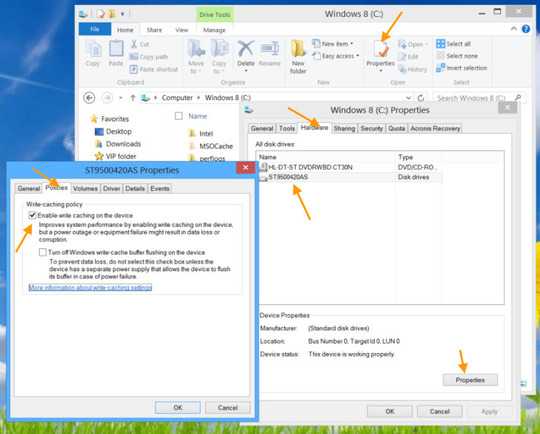Caching.
(Probably)
When Windows writes to disk it caches the writes to the disk. It shouldn't be doing this for flash or external USB drives, but it's the only real explanation that fits.
The copy file dialogue is showing the speed to copy files at the cache and not the disk itself and is then waiting at the end for all the data to be written out. The copy program can presumably see that there is data in the cache waiting to be written out but not how much.
There is a way to disable the write-cache for drives which may well stop this behaviour.
There is a quick guide to disabling the cache on the disk at Seven Forums, but I'm not at my computer to summarise it properly here. Basically you want to disable the disk cache only on removable or external devices, for performance you want to leave it enabled on internal devices.
You should be able to get to the same properties pages shown in the tutorial I linked by right-clicking the disk in an Explorer window, going down to properties, then selecting the Hardware tab that shows at the top of the window.
It should be a bit like this image from The Windows Club but you should have an option for quick removal on USB devices. (I'll replace this when I am able to later)


1Because the % estimate in Windows is not accurate most of the time. – Moab – 2016-03-12T03:59:20.790
1Try disabling your antivirus/antimalware to see if it helps? Maybe the antivirus is checking the files so that's why it is taking too long to finish. – axys93 – 2016-03-12T04:06:36.023
3Also it is a common issue when transferring files from a fast source to a more slower destination. If the external drive is connected via USB, it can diminish the real transfer speed.
If the file is very large, the speed goes slowly down to the real transfer speed between the two devices, because new data only can be read in same amount as the old data are removed from buffer. So when reaching the end of the file, it 'pauses' for a moment waiting for the data in buffer be transferred to the target.
So the only solution in this case is wait windows transfer the cache content. – axys93 – 2016-03-12T04:17:15.620
@axys93 have tried disabling the antivirus but still the same. about your second comment..yeah it might be the reason – Ashwin – 2016-03-12T04:34:14.373